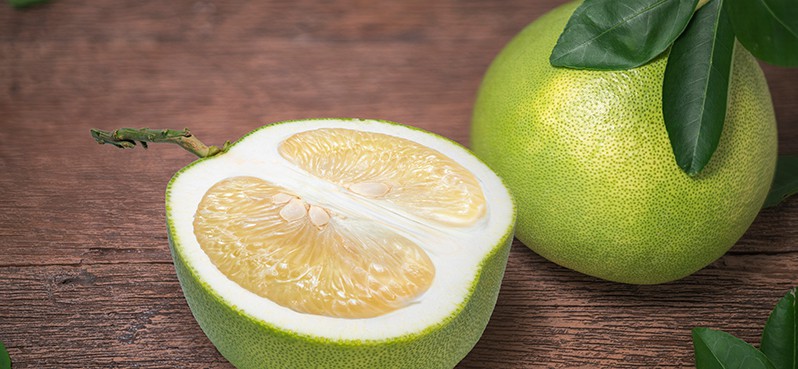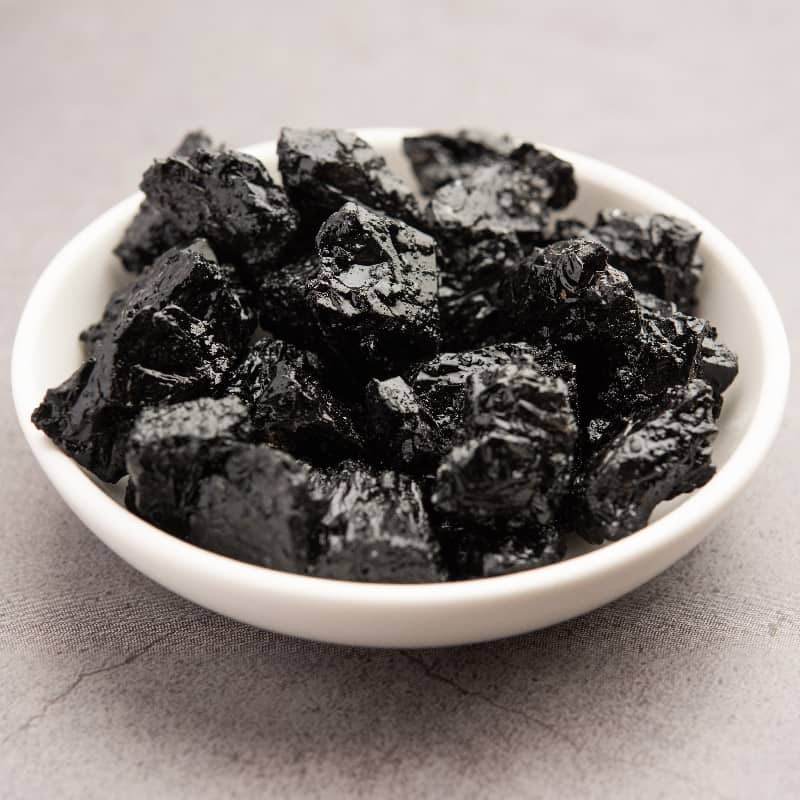This Dr. Axe content is medically reviewed or fact checked to ensure factually accurate information.
With strict editorial sourcing guidelines, we only link to academic research institutions, reputable media sites and, when research is available, medically peer-reviewed studies. Note that the numbers in parentheses (1, 2, etc.) are clickable links to these studies.
The information in our articles is NOT intended to replace a one-on-one relationship with a qualified health care professional and is not intended as medical advice.
This article is based on scientific evidence, written by experts and fact checked by our trained editorial staff. Note that the numbers in parentheses (1, 2, etc.) are clickable links to medically peer-reviewed studies.
Our team includes licensed nutritionists and dietitians, certified health education specialists, as well as certified strength and conditioning specialists, personal trainers and corrective exercise specialists. Our team aims to be not only thorough with its research, but also objective and unbiased.
The information in our articles is NOT intended to replace a one-on-one relationship with a qualified health care professional and is not intended as medical advice.
What Is Pomelo Fruit? Top 7 Benefits & How to Eat It
October 1, 2023

Although it may not be as well-known as other citrus fruits, the pomelo fruit is a powerhouse of nutrition that has been linked to a long list of health benefits. In fact, promising studies show that this superstar ingredient could potentially help slow signs of aging, reduce cancer cell growth and even balance cholesterol levels.
Not only that, but it’s also a great source of several essential nutrients and can provide a hearty dose of fiber, vitamin C and antioxidants in each and every serving, making it an excellent addition to your weekly meal rotation.
What Is Pomelo Fruit?
The pomelo fruit is a type of citrus fruit that is closely related to the grapefruit. Also known by its scientific name, Citrus maxima or Citrus grandis, the pomelo tree is native to Southern Asia and considered the largest citrus fruit from the rue family.
The skin of the fruit ranges in color from pale green to yellow, and the inside flesh can be either white, red or pink. However, there are several different varieties and hybrids available, all of which vary slightly in terms of size, color and appearance.
Some of the most common varieties include:
- Honey pomelo
- Chandler pomelo
- Florida pomelo
- Jaffa red pomelo
- Pomelit pomelo
- Reinking pomelo
The pomelo taste is very similar to that of the grapefruit, and its benefits are also similar to grapefruit benefits. However, the main difference between the flavor of the pomelo vs. grapefruit is that the pomelo is much more mild and less bitter and tart.
Although the fruit is referred to as “pomelo” in English, it’s also known by a number of other names around the world. For example, it’s commonly referred to as “jabong” in Hawaii and “jambola” in South Asia.
The term “shaddock” is also used in many English-speaking countries.
Nutrition Facts
Pomelo fruit is a good source of several important micronutrients, including vitamin C, copper, potassium and thiamine. Plus, each serving is low in pomelo calories yet packed with fiber to keep you feeling full between meals.
One one pomelo fruit (about 609 grams) contains approximately the following nutrients:
- Calories: 231
- Total Carbohydrates: 58.6 g
- Fiber: 6.1 g
- Total Fat: 0.2 g
- Protein: 4.6 g
- Sodium: 6.1 mg (0.3% DV*)
- Vitamin C: 371 mg (412% DV)
- Copper: 0.3 mg (33% DV)
- Potassium: 1,320 mg (28% DV)
- Thiamine: 0.2 mg (17% DV)
- Riboflavin: 0.2 mg (15% DV)
- Vitamin B6: 0.2 mg (12% DV)
- Magnesium: 36.5 mg (9% DV)
- Phosphorus: 104 mg (8% DV)
- Niacin: 1.3 mg (8% DV)
*Daily Value: Percentages are based on a diet of 2,000 calories a day.
In addition to the nutrients listed above, pomelos also contain a small amount of manganese, iron, zinc and calcium.
Health Benefits
1. Boosts Immune Function
Pomelo fruit is a great vitamin C food, an important water-soluble vitamin that plays a key role in immune health. Studies show that getting enough vitamin C in your diet can reduce symptoms and shorten the duration of respiratory tract infections, including the common cold.
Pomelos are also loaded with antioxidants, which are compounds that help block the formation of harmful free radicals in the body to prevent cell damage and oxidative stress. According to one study out of Spain, antioxidants may even protect against damage to immune cells and boost the body’s resistance to infectious pathogens.
2. Supports Digestive Health
Like other fruits and veggies, pomelos are high in fiber, packing nearly two grams into every cup. Fiber is an essential nutrient associated with a number of health benefits, especially when it comes to digestive health.
In fact, research shows your intake of dietary fiber can promote regularity and reduce the risk of digestive conditions, such as hemorrhoids, stomach ulcers and acid reflux.
That’s not all. Dietary fiber extracted from pomelo has been shown to promote intestinal function, both in vitro and in vivo.
3. Protects Against Chronic Disease
Pomelo fruits contain a wide array of antioxidants, including flavonoids such as naringin and naringenin, which are also commonly found in other citrus fruits, like grapefruit, lemons, limes, oranges and yuzu fruit.
Antioxidants are vital to several aspects of health. Not only can they relieve inflammation and reduce symptoms of many autoimmune disorders, but some research also suggests that antioxidants could protect against chronic conditions, such as heart disease, cancer and diabetes.
4. Can Reduce Cholesterol Levels
Several promising animal models have found that adding pomelo fruit to your diet could reduce cholesterol levels and optimize heart health. For instance, a 2019 animal study published in Journal of Toxicology showed that administering pomelo extract to rats was effective at reducing levels of total cholesterol, bad LDL cholesterol and triglycerides, all of which are major risk factors for heart disease.
What’s more, another animal model conducted in China noted that certain compounds extracted from pomelo peels helped improve lipid levels, reduce triglycerides and block weight gain in mice fed a high-fat diet.
Plus, a study in 2022 extracted naringin from pomelo and found it possesses anti-hyperlipidemia potential. The researchers noted that it should be explored for “its potential application as a dietary strategy for hyperlipidemia management in the future.”
5. May Help Fight Cancer Cell Growth
Although more research is needed in humans, some studies in animals have found that the antioxidants and polyphenols found in pomelo fruit could potentially help slow the growth of cancer cells.
For example, a 2018 animal model reported that treating mice with pomelo extract was effective at suppressing tumor growth and protecting immune function. Another study had similar findings, noting that pomelo extract possessed powerful cancer-fighting properties and was able to reduce tumor volume and decrease the number of tumor cells in mice.
Additionally, scientific research shows that the peels of citrus fruits hold flavonoids that may be potential cancer prevention agents. One study even found evidence that carotenoids extracted from pomelo leaves can inhibit melanoma cells A375, showcasing its cancer-fighting potential.
6. Slows Signs of Aging
Pomelo is high in vitamin C and antioxidants, both of which are important compounds that can help slow signs of aging by protecting against damage caused by free radicals. In addition, many varieties are high in gallic acid, which has anti-aging effects.
Plus, some studies have found that pomelo extract could help inhibit the formation of advanced glycation end products, also known as AGEs. Although AGEs are primarily caused by high blood sugar levels, they are also produced during the aging process and thought to contribute to signs of aging, like wrinkles, fine lines and decreased skin elasticity.
7. Contains Antimicrobial Properties
Interestingly enough, some research shows that pomelo could have antimicrobial properties, which could be effective against harmful strains of bacteria and fungus.
Most studies are focused on the effects of essential oils extracted from pomelo fruit, which have been shown to prevent the growth of specific strains of bacteria, such as Staphylococci and Enterobacteriaceae. A study conducted by Vietnam National University also found that pomelo was effective against several types of fungus as well, including Penicillium expansum, a type of blue mold that acts as a plant pathogen.
Recipes
Thanks to its growing popularity, dried and fresh varieties of this tasty fruit can be found at many specialty shops, health food stores and online retailers.
Although it’s most often enjoyed as is for a healthy snack, there are tons of other options available for how to eat pomelo. It works especially well sprinkled over salads and smoothie bowls, but it can also be used to add a burst of flavor to desserts and mixed drinks as well.
Alternatively, try pairing it with other citrus fruits and whipping up a homemade marmalade to spread over your favorite dishes.
Here are a few simple recipes that you can try at home:
- Pomelo with Yogurt and Pistachios
- Pomelo Fruit Smoothie Bowl
- Thai Pomelo Salad
- Five-Citrus Marmalade
Risks, Side Effects and Interactions
Although this delicious citrus fruit can be a great addition to the diet for most healthy adults, there are some who may need to exercise caution when consuming pomelo fruit.
In particular, those with an allergy to citrus fruit should avoid pomelo, as it may trigger side effects like hives, itching, rashes and digestive issues. If you experience these or any other side effects after consuming the fruit, discontinue use immediately, and consult with your doctor.
Like grapefruit, it may also interfere with certain medications, including some types of statins. If you’re taking any medications or have any underlying health conditions, be sure to talk to your doctor before adding this pomelo to your diet.
Final Thoughts
- What is a pomelo? This type of citrus fruit is closely related to grapefruit and has many similarities in terms of taste, texture and appearance.
- Like other citrus fruits, it is highly nutritious. Each serving is low in calories but high in fiber, vitamin C, copper and potassium, along with several other micronutrients.
- Some of the potential pomelo benefits include reduced cholesterol levels, improved immunity, enhanced digestive health, protection against chronic disease, decreased cancer cell growth, slowed signs of aging and reduced microbial growth.
- Pomelo is also incredibly versatile and can be enjoyed as is or used to make smoothies, salads, mixed drinks and desserts.










